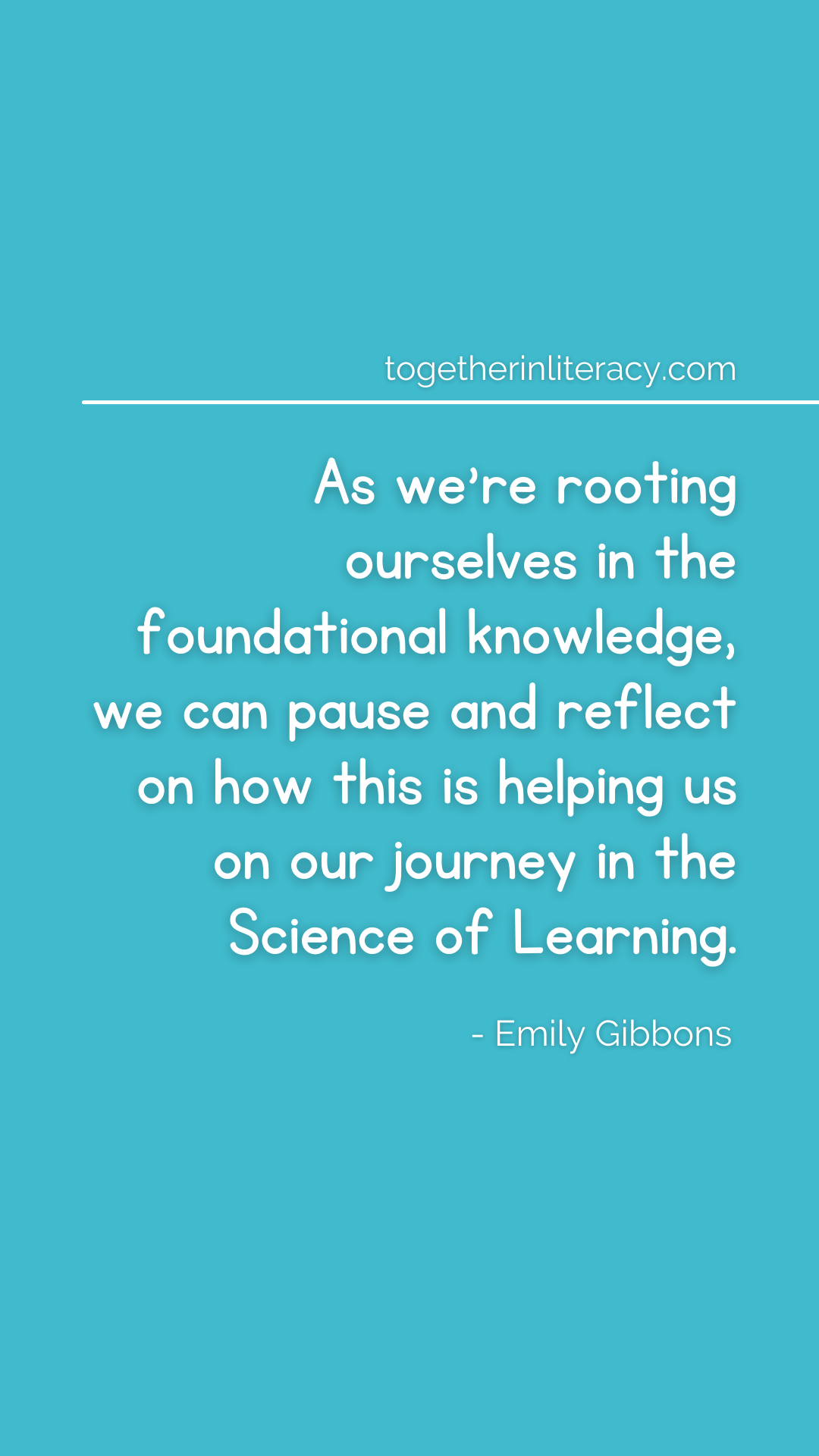Tips for Finding the BEST Professional Development Opportunities This Summer

The world we live in is a noisy place. We are constantly bombarded with information from multiple places all at once. There is a ton of information out there in forums and Facebook groups, but we want you to be mindful of what is worth your time and rooted in research,
As you begin your summer break, you’re likely starting to think about what books you should read, workshops and webinars you can attend, or courses you should take. There are certain questions we ask ourselves and things we consider before we make a commitment to a specific learning tool or experience.
So, before you pick up that book or register for that workshop, we encourage you to consider a few things.
Here are 4 questions to ask before committing to a learning experience this summer:
1. Where am I on my journey?
As teachers, we are all on a journey, but we may be at different points on that journey. Pause and think about how this experience will help you on your journey into the Science of Learning.
As you’re taking in information, also consider where the instructor is at on their journey compared to where you are. Where they are on their journey into the Science of Reading and the Science of Learning is just as important as understanding where you are on your journey.

2. Is it grounded in the IDA’s Knowledge and Practice Standards (KPS) for Teaching Reading?
The IDA’s KPS is like a unifying document given to us to help bring us all together. Before you commit to any learning experience this summer, you want to make sure that it is going to be rooted in the information from this document. This document gives us a nice solid foundation of understanding from which to grow.
3. Is it addressing the domains of structured literacy?
Structured literacy has a richness. Look for books and training that are going to be able to address all the domains and principles of structured literacy.
Remember, the five domains of structured literacy are:
- Phonology
- Orthography
- Syntax
- Morphology
- Semantics
4. Where do I want to deepen my knowledge?
The Science of Reading and the Science of Learning are rooted in deep layers and not just sprinkles. We like to think of the Science of Learning as a thick, rich wedding cake as opposed to a thin sheet cake.
So, when you are choosing the books you’ll read and the webinars you’ll attend, also think about where you want to deepen your knowledge. Where do you want to have a more solid learning? Then, find people who are sharing information rooted in the KPS to provide you with that deeper understanding.

Here are 3 things to be cautious about before committing to a summer learning experience:
1. Be aware of the terminology being used.
It’s important to be aware of the terminology used and how that relates to research, classroom pedagogy, learning differences, and what that means for instruction. There are approaches and programs out there that have coined certain terminology, or used certain terminology in one way and then maybe repurposed it in another way. What we have to do is go back, and look at what their research is actually saying.
So, if you're seeing certain terminology that you think you’ve heard before, check into the research. Dig in and see how it was used in the past and how it is being used now.
2. Be wary of promises about outcomes.
We all want better outcomes for our students. In today's day and age, we want fast outcomes. In working with students with dyslexia or learning differences, when we hear things about students making specific gains in a set amount of time, that always causes us to pause.
Having been in this a while, we know that no outcome can be promised in a set amount of time. Really, the outcomes will come down to that student's learning profile.
3. Pay attention to what the research is saying.
Continue to lean into the research from researchers in the field who have long-standing experience in structured literacy. We are always learning and we turn to studies, researchers, and books from trusted sources. Some of those trusted sources for us are Marsha Henry, Louisa Moats, Charles Perfetti, and Anita Archer.
For our full conversation about summer professional development experiences, check out our latest episode of the Together in Literacy podcast. If you like what you hear, don’t forget to rate, leave a positive review, and subscribe!
We officially have merch! Show your love Together in Literacy podcast with a t-shirt or sweatshirt!
Looking for strategies and resources?
Sign up for our newsletter for news, resources, and freebies delivered straight to your inbox.
We hate SPAM. We will never sell your information, for any reason.
